#35: Establish the Character of a Setting
We’ve talked a lot about characters—the people who are part of a story—but places can also have character.
One of the definitions that the Oxford English Dictionary provides for the word character is:
The aggregate of the distinctive features of something; essential peculiarity; distinctive nature, style, or quality; sort, kind, description.
The character of a setting is its essence, its overall nature which is experienced by those who interact with it (both the characters within a story and the readers of the story).
Jane Austen masterfully captures the character of a setting—its essence—regardless of whether she uses large or small amounts of description. Here are a few examples of the character of a setting from her novels:
Emma
In Emma, a shop is the setting for several key scenes, including Harriet running into Robert Martin, and a key interaction between Emma and Frank Churchill.
The essence of the shop, Ford’s, is described by the narrator:
Ford’s was the principal woollen-draper, linen-draper, and haberdasher’s shop united; the shop first in size and fashion in the place.
We see this essence again when Frank Churchill proposes that he and Emma visit it:
At this moment they were approaching Ford’s, and he hastily exclaimed, “Ha! this must be the very shop that every body attends every day of their lives, as my father informs me. He comes to Highbury himself, he says, six days out of the seven, and has always business at Ford’s. If it be not inconvenient to you, pray let us go in, that I may prove myself to belong to the place, to be a true citizen of Highbury. I must buy something at Ford’s. It will be taking out my freedom.—I dare say they sell gloves.”
Pride and Prejudice
In Pride and Prejudice, Rosings is the estate of Lady Catherine de Bourgh. Its essence has less to do with its buildings and land than with the fact that it is owned by Lady Catherine. In a previous post, I described Elizabeth’s approach to Rosings and the way in which description is used, but I’d like to offer one further quote:
The palings of Rosings Park was their boundary on one side. Elizabeth smiled at the recollection of all that she had heard of its inhabitants.
Rosings itself does not actually matter; rather, it is Rosings in the imagination that is of import, it is Rosings and its various associations that impacts all the characters that come in contact with it.
Persuasion
In Persuasion, the Elliot family is in rough financial straits and as a result is forced to rent out their estate. They go to stay in Bath, a bustling community that is known for being a center of society and health (while being a little cheaper on the pocketbook).
This is its core essence, but different characters, such as Lady Russell and Anne, interact with this core essence differently:
Everybody has their taste in noises as well as in other matters; and sounds are quite innoxious, or most distressing, by their sort rather than their quantity. When Lady Russell not long afterwards, was entering Bath on a wet afternoon, and driving through the long course of streets from the Old Bridge to Camden Place, amidst the dash of other carriages, the heavy rumble of carts and drays, the bawling of newspapermen, muffin-men and milkmen, and the ceaseless clink of pattens, she made no complaint. No, these were noises which belonged to the winter pleasures; her spirits rose under their influence; and like Mrs Musgrove, she was feeling, though not saying, that after being long in the country, nothing could be so good for her as a little quiet cheerfulness.
Anne did not share these feelings. She persisted in a very determined, though very silent disinclination for Bath; caught the first dim view of the extensive buildings, smoking in rain, without any wish of seeing them better; felt their progress through the streets to be, however disagreeable, yet too rapid; for who would be glad to see her when she arrived? And looked back, with fond regret, to the bustles of Uppercross and the seclusion of Kellynch.
As an interesting note, to me personally, the character of Bath feels different in Austen’s novel Northanger Abbey. In Northanger Abbey, Bath’s essence or defining characteristic seems to be as a place of possibility and discovery, both good and bad. The character of a particular setting can be represented differently depending on the needs of the story.
Establishing the Character of a Setting
While Jane Austen does not directly address the character of every single one of her settings, most of the time it is still implied. For important settings, it is especially useful to consider the overall character of the setting.
As seen in the above examples, the character could relate to its physical characteristics and mood, the people that reside in a setting, how the setting is used, a person who owns or is associated with a space. This is not an exhaustive list: a multitude of things could be contribute to the essence of a place.
Exercise 1: Choose five settings from your life. These can be very specific/focused settings (a particular room) or much larger/broader (a city or a region) or anything in between. For each of the settings, write a single sentence in which you capture the essence or character of the setting.
Exercise 2: As you watch a film, make a list of every single setting in the film. Afterwards, in a word or a phrase, describe the character of each setting, as represented in the film. What sorts of things determine the character of each setting? Is it the physical characteristics? How people use the setting? What the setting represents? The people in the setting and their behavior? Etc.
Exercise 3: Revise a scene you have written to better capture the essence or character of the setting. As you do so, consider how different characters might feel differently about the setting and its character.

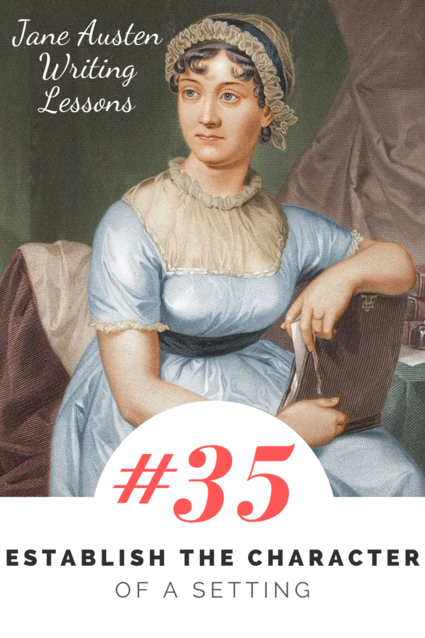


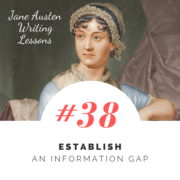
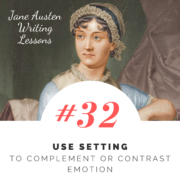



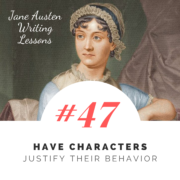
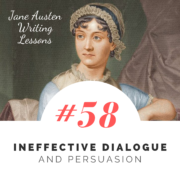



Leave a Reply
Want to join the discussion?Feel free to contribute!